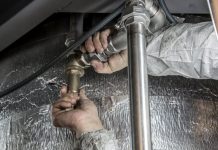Retirement is a time to relax and enjoy the fruits of your labor, but it can also bring financial worries for many people. As you transition from working full-time to living on a fixed income, it’s natural to wonder if your savings will stretch far enough. Fortunately, a reverse mortgage may help bridge the gap between your income and expenses, allowing you to live comfortably in your retirement years. This article will explore how reverse mortgages work, their benefits, and how they can provide financial relief in retirement.
What Is a Reverse Mortgage?
A reverse mortgage is a type of loan that allows homeowners aged 62 or older to convert a portion of the equity in their home into cash. Unlike a traditional mortgage, where you make monthly payments to the lender, a reverse mortgage works in the opposite direction. Instead of paying the lender, the lender makes payments to you as a lump sum, a line of credit, or regular monthly installments.
The loan is repaid when you sell the home, move out, or pass away. As long as you live in the home and meet certain requirements, you do not have to make any payments during the loan’s life. This makes it a popular choice for retirees who have built significant home equity but need additional funds to cover living expenses.
How Does a Reverse Mortgage Work?
In a reverse mortgage, the lender uses your home as collateral. The loan amount you are eligible for depends on factors such as your home’s value, age, and current interest rates. The older you are, the more equity you can typically access.
The payments you receive from the lender are not considered taxable income, another benefit for retirees. These payments can be used for various purposes, such as covering medical expenses, paying off existing debt, or supplementing your retirement income.
Once the reverse mortgage is in place, you continue to own your home, and the loan balance gradually increases over time as interest accrues. The loan is paid off when the house is sold or when you pass away or move out permanently. At that point, the home sale proceeds are used to pay off the loan balance, and any remaining equity is passed on to your heirs.
Requirements for Reverse Mortgages
There are a few essential criteria you must meet to qualify for a reverse mortgage. These include being at least 62 years old, owning your home outright or having a low mortgage balance that can be paid off with the proceeds of the reverse mortgage, and living in the home as your primary residence. Additionally, you must be able to maintain the home and meet basic living costs, such as paying property taxes and insurance.
Lenders will also assess your financial situation, although they do not require you to have a specific income or credit score. Understanding the requirements for a reverse mortgage is crucial, as the key is ensuring that the property is well-maintained and that you can meet the basic obligations related to homeownership.
The Benefits of a Reverse Mortgage in Retirement
1. Supplement Your Retirement Income
One of the main advantages of a reverse mortgage is that it provides a way to supplement your retirement income. Many retirees struggle with budgeting once they stop working, and a reverse mortgage can help make up the difference. You can use the funds to cover day-to-day expenses, travel, or invest in hobbies that enrich your retirement years.
Additionally, you don’t have to worry about monthly mortgage payments. As long as you live in the home, you won’t have to pay anything back until the loan is due. This frees up money that would otherwise go toward housing costs, which is a significant advantage for many retirees on a fixed income.
2. No Monthly Payments Required
Unlike traditional mortgages or home equity loans, reverse mortgages do not require monthly payments. This makes them especially attractive for retirees concerned about the financial strain of making regular mortgage payments. The loan is repaid when the home is sold, or the borrower moves out, which removes the pressure of needing to make monthly payments.
This feature can provide a sense of relief and security, especially for those who are no longer earning a regular paycheck but still want to maintain their standard of living. Since the loan balance increases over time as interest accrues, the borrower doesn’t need to worry about making payments—only about living in their home as long as they wish.
3. Protects Your Home Equity
A reverse mortgage allows you to tap into your home’s equity without selling it. This means you can continue to live in the home you’ve spent years paying off, enjoying the same sense of security and comfort. Additionally, because the loan is based on your home equity, it doesn’t require you to have additional assets or a strong credit score.
Since reverse mortgages are non-recourse loans, you won’t owe more than the home’s value, even if the loan balance exceeds the sale price. As long as you or your heirs sell the home for enough to cover the loan, you are not personally responsible for any remaining debt. This provides a safety net for both you and your heirs.
4. Flexibility in Payment Options
Reverse mortgages offer several different ways to receive the loan proceeds. These options include:
- Lump Sum: A one-time payment to the borrower.
- Line of Credit: Borrowers can access funds as needed, providing flexibility.
- Monthly Payments: Regular monthly payments to help cover ongoing living expenses.
This flexibility allows you to choose the method that best suits your financial needs. For example, a lump sum might be the best option if you have significant medical bills or wish to fund a major home renovation. Alternatively, monthly installments could be a better fit if you need predictable monthly payments to supplement your income.
5. Retain Ownership of Your Home
While receiving payments from a reverse mortgage, you still retain home ownership. You are responsible for maintaining the property, paying property taxes, and keeping up with homeowner’s insurance. As long as you meet these requirements, you can continue to live in your home.
This can be especially important for retirees who want to remain in a familiar environment. A reverse mortgage allows you to live out your retirement years in the comfort of your home without worrying about selling or moving into a new property.
Potential Drawbacks of a Reverse Mortgage
While reverse mortgages offer many benefits, they are not without their drawbacks. It’s important to consider the potential downsides carefully before deciding if a reverse mortgage suits you.
1. Loan Balance Increases Over Time
The loan balance will gradually increase because reverse mortgages accrue interest over time. This can eat into your home equity, leaving you with less to pass on to your heirs. However, this can be mitigated by ensuring the home is sold at a price that covers the loan balance.
2. Impact on Your Heirs
When the reverse mortgage is repaid, the home sale proceeds go toward paying off the loan. If the home’s value doesn’t cover the loan balance, your heirs may not receive any remaining equity. However, since reverse mortgages are non-recourse loans, your heirs are not responsible for any shortfall.
3. Costs and Fees
Reverse mortgages come with various fees, including origination fees, closing costs, and servicing fees. These can add up, so factoring them into your decision-making process is important.
Conclusion
A reverse mortgage can be a valuable financial tool for retirees looking to supplement their income and live comfortably in retirement. By tapping into the equity in your home, you can receive funds that help cover everyday expenses, medical bills, or any other financial needs. With no monthly payments required and the flexibility to access funds in a way that suits you, a reverse mortgage can offer peace of mind in your retirement years. However, it’s important to carefully consider the requirements, costs, and potential impact on your heirs before proceeding.




